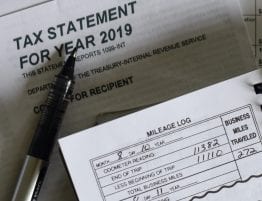
During the filing season, scammers file fraudulent tax returns using stolen identities to get a large refund. According to an audit report by the Treasury Inspector General for Tax Administration, As of February 15, 2019, the IRS held 10.7 million tax returns with refunds totaling $57.9 billion with an Earned Income Tax Credit or Additional Child Tax Credit claim as required.
As of February 23, 2019, the IRS reported that it identified 3,529 tax returns with approximately $15.8 million claimed in fraudulent refunds and prevented the issuance of $12.2 million (77.2 percent) in fraudulent refunds.
Though the IRS has been successful in curbing tax refund fraud, its success has come at a price. Many legitimate low-income taxpayers who filed their return correctly and expected a small refund are finding their refund frozen and the IRS coming at them with an inquiry. USA Today shares:
“Kim Henry thought she had a simple tax return this year.
The 59-year-old resident of Fort Wayne, Indiana, was expecting a small refund — just $327. But after submitting her return electronically on the first tax filing day in January, she got a letter from the IRS about two weeks later asking her to verify her identity. She could do it online, over the phone or in person.
When she called, the IRS representative asked a series of questions to confirm her identity: address, last tax filing, date and place of birth, mother’s maiden name, father’s name, and the source of her income in 2012.
She answered all but one correctly. She couldn’t remember the administrator of investment funds that sent her a 1099 form in 2012.
That single memory lapse was enough to upend everything.
‘She told me I had failed the entire identity test, and I couldn’t get my refund unless I went to an IRS local office,’ says Henry, who doesn’t have a car.
Fraud detection ramps up
Henry is not alone in her frustration.
Since 2015, when tax identity theft hit near-crisis levels, the IRS has ramped up its efforts with state revenue departments, national tax professional groups, and software preparation companies to detect fishy returns and cut down on the number of stolen refunds.
The efforts, so far, have been successful. The volume of victims reporting tax identity theft fell 19 percent over the first 10 months of 2018, compared with the same stretch in 2017, and 72 percent from the same period in 2015, according to the latest IRS figures.
Still, too many legitimate taxpayers are getting caught up in the flagging process, according to Nina Olson, who heads the Office of the Taxpayer Advocate, a government office dedicated to helping taxpayers solve their problems with the IRS.
Last year, almost two-thirds of taxpayers caught in the IRS identity fraud filters were legitimate filers. The false-positive rate should be closer to 50 percent, Olson says, based on conversations she’s had with industry players and financial services companies.
It’s not always clear what triggers an ID theft concern on a return.
‘There’s just something in the return that makes the IRS think it’s not the taxpayer,’ says Olson. ‘Possibly another return with the same Social Security number, so the IRS has to figure out which one is the real taxpayer.’
What you must do next depends on which of the four ID theft letters you received. Some cases can be resolved online or over the phone, while others require an in-person visit to a Taxpayer Assistance Center. The letter should outline what materials you need, which typically include the letter itself, last year’s return, this year’s return, and supporting documents such as W-2s and 1099s.
‘They may ask knowledge-based questions … such as previous addresses, or credit cards that you have,’ says Kathy Pickering, the executive director of H&R Block’s Tax Institute. If you really are the authentic taxpayer, chances are you will know those answers.”
But sometimes, you may not remember, such as in Henry’s case.
‘I’ve heard people say they asked about a car loan from years ago,’ Olson says. ‘Any one of those questions can screw you up.’
Refund delay
Even if you sail through the verification process, it may take up to nine weeks to get your refund, according to the letter Henry received.
‘What they are withholding from me is something I already earned,’ she says.
That delay could be especially difficult for working-class and poor taxpayers who claim the Earned Income Tax Credit — as Henry did — or the Additional Child Tax Credit, both of which receive extra scrutiny for ID theft because they are so valuable.
In fact, even for early filers, refunds from returns that claim those credits can’t be issued until mid-February by law, so the IRS has extra time to run them through its detection process.
‘They are targeting lower-income people and putting the burden on them to get a refund,’ says Henry, who has yet to resolve her case. ‘Picking on someone who has a $327 refund doesn’t seem very profitable to me.’”
Fill out the form for a free and confidential consultation.








